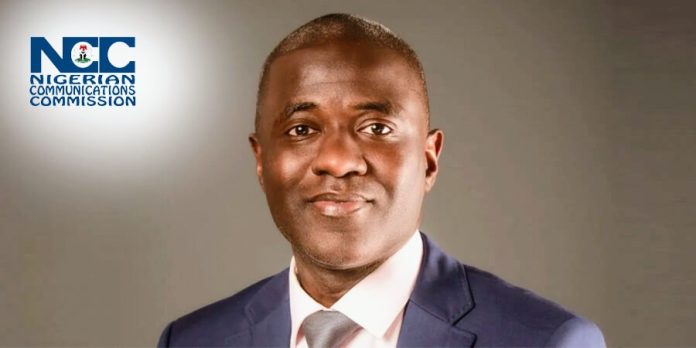In what many are describing as a bold step toward consumer-centric reform in Nigeria’s telecom space, the Nigerian Communications Commission (NCC) today convened a virtual stakeholder forum focused on the growing concern of unclaimed prepaid airtime balances—a topic that has sparked debates across boardrooms, consumer circles, and policy spaces.
The event, which attracted major players from telecom companies, consumer advocacy groups, regulators, and tech analysts, was opened with a welcome address by the Executive Vice Chairman (EVC) of the NCC, Dr. Aminu Maida, delivered on his behalf by the Executive Commissioner, Stakeholder Management, Ms. Rimini Makama.
In his heartfelt message, Dr. Maida didn’t mince words about the urgent need to find clarity and fairness in how dormant prepaid balances are handled, especially as mobile communication continues to define life and commerce in Nigeria.
“This is more than just policy—it’s about people,” the EVC emphasized. “Millions of Nigerians rely on prepaid services because of the flexibility and affordability they offer. But as our sector evolves, we must ensure that no consumer is left behind or shortchanged.”
A System That Must Work for Everyone
For many Nigerians, topping up airtime is a daily ritual. But what happens when a SIM card goes silent for too long—due to loss, theft, or simply not being in use? That’s the grey area the NCC is now confronting head-on.
“According to the Quality-of-Service Business Rules 2024,” Dr. Maida explained, “a prepaid line that has no revenue-generating event for six months must be deactivated. If that inactivity continues for another six months, the line can be recycled for reassignment.”
He quickly added that this is not a free-for-all for operators, pointing out that the rights of subscribers must be preserved.
“Subscribers still have the right to reclaim their unused credit within one year, as long as they can prove ownership of the line,” he said. “This is a protection mechanism to make sure customers are not stripped of their credit simply because of unforeseen inactivity.”
“Use It or Lose It”? Not So Fast…
One of the most engaging parts of Dr. Maida’s address was his openness in acknowledging the controversy surrounding unclaimed recharges. Should telecom operators refund them? Should unused balances expire? Where do you draw the line between consumer rights and operational realities?
“There’s an ongoing debate,” he noted, “on whether the principle of ‘use it or lose it’ should prevail, or if we must create new mechanisms for refunding unused airtime. It’s not a simple question. But that’s exactly why we’re here—to listen, to debate, and to co-create a policy direction.”
He added that the Commission was not positioning itself as an arbiter, but rather as a facilitator of solutions.
“We’re not here with fixed answers,” Dr. Maida said. “We’re here to ask the right questions and engage with stakeholders—both operators and consumers—in shaping policies that are inclusive, fair, and forward-thinking.”
Consumer Trust Is Currency
In a sector where trust can be easily eroded by service glitches or billing issues, the NCC made it clear that restoring and maintaining consumer confidence is non-negotiable.
“We know that consumer trust is the currency that sustains this industry,” Dr. Maida declared. “If people begin to feel that their airtime can disappear without trace or recourse, we risk losing the very foundation upon which telecom services are built.”
A Call for Collaborative Action
In closing, Dr. Maida made a passionate appeal for continued collaboration among all parties—regulators, telcos, consumer groups, and the media—to ensure that policy remains dynamic, inclusive, and adaptable.
“Striking the right balance between safeguarding consumer rights and ensuring regulatory oversight, while maintaining industry sustainability, requires a collective effort,” he said. “This forum is a vital opportunity for us to ask hard questions and find practical, actionable answers.”
“Let’s talk honestly. Let’s listen openly. And let’s build a telecom ecosystem that works for everyone.”
The forum continues with presentations and breakout discussions expected to shape a whitepaper or policy recommendation in the coming weeks.




